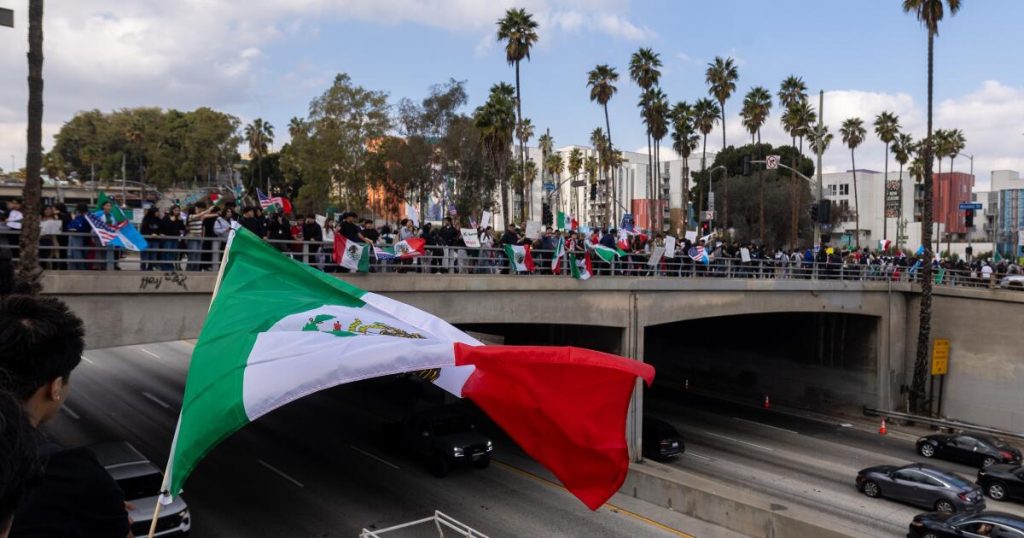Introduction: The Incident and Charges
In a recent incident that underscored the tensions surrounding political protests, Martin Richard Torres, a 42-year-old Los Angeles resident, was charged with felony vandalism for throwing books at cars on a freeway during protests against President Trump’s immigration policies. The act, which occurred on February 3rd, led to Torres being charged with felony vandalism and throwing an object with intent to cause injury. If convicted, he faces up to seven years and four months in prison, with a bail set at $755,000. This event highlights the legal repercussions of actions taken during protests and the importance of maintaining safety and legality during demonstrations.
Context: The Protest Movement
The incident took place amidst "A Day Without Immigrants," a nationwide movement where immigrants boycotted work, school, and shopping to protest President Trump’s immigration policies. Thousands marched through downtown Los Angeles, using the protest to voice their concerns. Torres’ actions, although not definitively linked to the protest, occurred during this event, raising questions about the line between peaceful protest and criminal behavior. The movement aimed to demonstrate the impact of immigrant contributions, but Torres’ alleged actions overshadowed the peaceful intent of the protest.
Legal Implications and Consequences
District Attorney Nathan Hochman emphasized that while peaceful protests are protected, criminal actions hiding behind such events will be prosecuted. Torres’ actions posed significant risks, as throwing objects at vehicles could lead to accidents, injuries, or even fatalities. The charges against him reflect the seriousness of endangering public safety, even if no one was physically harmed. This case sets a precedent for addressing similar incidents, balancing the right to protest with the need to maintain public safety.
Prosecutor’s Message and Societal Debate
Hochman’s statement addressed both protestors and potential offenders, reinforcing the right to lawful protest while warning against using it as a cover for crime. This incident has sparked debate about the boundaries between free speech and criminal behavior. It questions how society can protect the right to assemble while ensuring public safety, emphasizing the need for protestors to remain within legal boundaries to maintain the integrity and impact of their message.
Balancing Rights and Safety
The case of Martin Richard Torres serves as a reminder of the delicate balance between exercising constitutional rights and ensuring public safety. It challenges authorities to distinguish between legitimate protest and dangerous actions, ensuring that protests remain peaceful and safe. This incident highlights the importance of accountability and the potential consequences of actions that jeopardize safety, reinforcing the need for lawful expression of dissent.
Conclusion: Impact and Reflection
In conclusion, this incident reflects broader societal issues, where political tensions can lead to actions that blur the lines between protest and crime. The charges against Torres underscore the legal system’s role in maintaining public safety while protecting the right to protest. As debates continue about immigration policies and protest rights, this case serves as a cautionary tale about the importance of lawful and peaceful expression. It reminds us that safeguarding both rights and safety is essential for a functioning democracy.
